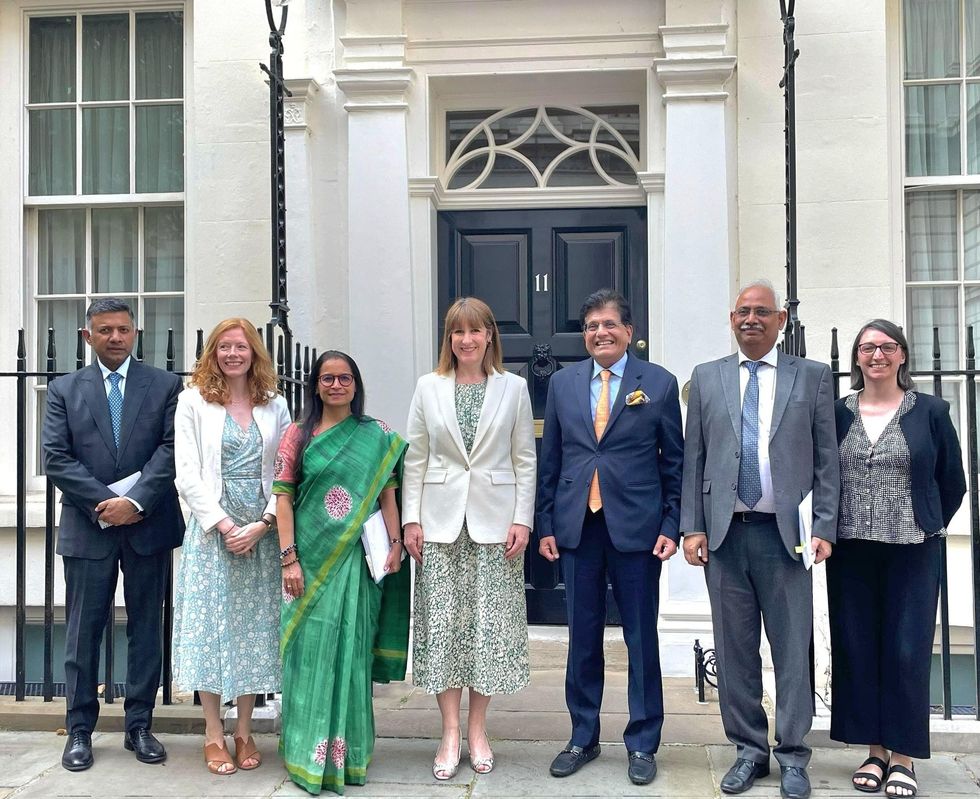By Nadeem Badshah
ASIAN shopkeepers have revealed they are struggling with low stock levels after panic buying by shoppers over coronavirus fears.
Stores have seen a spike in sales of toiletries, rice, atta flour and spices since the virus outbreak, but some shops have been unable to restock due to higher prices and also being financially “outmuscled” by supermarket giants.
In Poplar, east London, some ethnic stores are well stocked with toilet rolls, toothpaste and hand sanitiser, while supermarkets in the area are running low on those supplies. But in other areas of the country, smaller firms are struggling to buy enough stock from suppliers and websites, a crisis which could escalate with schools in England, Wales and Scotland closing last Friday (20).
Some business owners have accused the government of failing to give the retail industry a “heads-up” about panic buying and restricting consumers to a strict quantity of household goods sooner.
Ajit Atwal, a petrol station owner and Liberal Democrats councillor in Derbyshire, in the Midlands, told Eastern Eye: “Footfall has fallen 50-60 per cent this week. The government is not making it very clear, so people are unsure what to do. We are selling toilet paper at the garage, but we can’t get hold of it to sell it. People are coming in to ask for chapatti flour.
“Greedy people are hoarding for no reason.”
Atwal added: “I am all for supporting local businesses, but putting prices up at people’s expense, you are having a laugh. They [stores] should take a long hard look at themselves.
“A lot of shops are in the same situation. I am 50 and have been in business since I was a kid, but I have never experienced anything like this. People are panicking.”
The Competition and Markets Authority has vowed it will consider any evidence that firms may have broken laws by charging excessive prices or making misleading claims.
Meanwhile, research found that photographs of empty supermarket shelves spark panic buying.
Some 86 per cent of people purchase more items if exposed to images of empty shelves in online articles, the study by the University of Edinburgh’s Business School and the University of Southampton found. And 33 per cent of people surveyed admitted to stockpiling supplies.
Usman Younas, who runs the Watan Superstore in Bradford, Yorkshire, is concerned about his stock levels ahead of Easter and Ramadan which starts in late April.
He told Eastern Eye: “Initially, the government hadn’t created awareness and the implications of the disease. They played it down compared to the rest of the world.
“Then everyone went berserk, the self-isolating measure created panic. I bought as I needed to, but my main concern is Ramadan and tackling that and the influx.
“Easter is also a time when we see an increase in sales. Suppliers didn’t tell us to stock up as they weren’t told.
“We are out of stock on toiletries, down to the bare minimum in our tinned section, and spices and rice are non-existent.”
Younas added: “It has hit us, it was a surprise. There is an increase in sales but [that’s fine] as long as there is continued supply.
“We have sold everything, but cannot replace it. People are getting frustrated, and we can’t serve the community.
“The bigger retailers are quids in, they had leftover stock and can hike prices to an extent. The government should have prepared us better and given us a heads up that we might have this problem.”
One report last week said people had spent £60 million by stockpiling items.
Asda and Tesco are closing service counters – such as delicatessens and fish counters – and joined Sainsbury’s, Aldi, Lidl and the Co-op in imposing limits on amounts that can be purchased.
Sainsbury’s and Iceland have also dedicated a specific portion of their opening hours exclusively to elderly shoppers.
Meanwhile, some Asian-owned businesses near football grounds are reeling from losses with the Premier League and other tournaments announcing they were suspending matches until at least the end of April.
Revenue for businesses around Old Trafford, the home of Manchester United, is collectively worth tens of thousands of pounds on a match day.
Manchester Souvenirs and News in the Deansgate area, near the normally busy Manchester Arndale mall, sells merchandise from football clubs Manchester United and Manchester City, along with food and drinks. An employee said last week: “It’s [Covid-19] impacted us massively with customers. We are a one-man operation at the moment.”
Other businesses near Old Trafford, including Kebabish Express, were closed last Friday (20).
Schools have been closed until further notice for all except children of key workers and vulnerable children.
The Association of Convenience Stores (ACS) has called on the government to ensure that the UK’s 405,000 convenience store employees are given key worker status so they can carry on providing a lifeline to local communities.
It wrote to the government last week calling for firms to be allowed to delay VAT, employers NICs, business rates, PAYE and corporation tax for at least six months, as well as subsidise wages for people laid off as a result of the outbreak.
ACS chief executive James Lowman said: “Convenience stores are a lifeline for local people, providing essential goods in communities across Britain to those who can’t go to larger stores, or can’t get products elsewhere.
“It is essential that the colleagues working in convenience stores are given the reassurance of the key worker status so that they can keep providing that service.”
Last weekend, it emerged that Britons have spent £1 billion on stockpiling essentials in three weeks, leaving vulnerable pensioners without basics such as food and toilet paper.
Stephen Powis, NHS England national medical director, said that panic buyers were depriving hard-working NHS staff, adding: “Frankly we should all be ashamed.”
He said: “It is critical that by not stockpiling, by not selfishly shopping, that our health workers are able to get access to what they need too.”
Meanwhile, the chief executive of the British Retail Consortium said there “is plenty of food in the supply chain”.
Helen Dickinson said: “Brits have a billion pounds more food in their homes than they did three weeks ago, so we need to make sure we eat some of it.”
Dickinson said she wanted to reassure people that those “right across the food industry... are doing everything they can to ensure we have the food we all need.”

















 Piyush Goyal with shadow chancellor Rachel Reeves (centre), Vikram Doraiswami and other officials at the India Global Forum
Piyush Goyal with shadow chancellor Rachel Reeves (centre), Vikram Doraiswami and other officials at the India Global Forum And , Goyal with Jonathan Reynolds
And , Goyal with Jonathan Reynolds